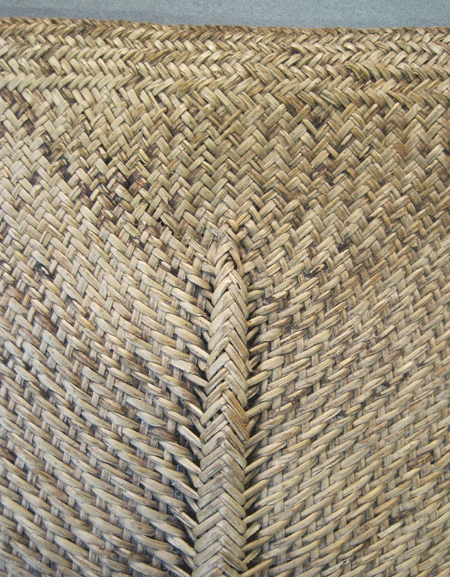 |
| 1886.1.1412 (left) and 1886.1.1411 - Two fans from the Marquesas |
There are two fans from the Marquesas Islands in the Forster Collection. Listed in the appendix of the 'Catalogue of Curiosities', they are Nos. 169 and 170 'Two fanns from the Marquesas'. They were collected on the island of Tahuata (Sta. Christina) between the 8th and the 11th April 1774.
 |
| Detail of 1886.1.1412 showing the woven fan blade, central top section |
The fans (tah'i) are woven around a wooden handle, or ke'e. Usually,
grass, pandanus leaf or the leaves and midribs of the coconut palm were
used to made the blades, and they were whitened with crushed coral or
lime, as reported by George Forster in 'A Voyage Round the World'.
'The weather was exceedingly hot his day, for which reason many of the inhabitants made use of large fans to cool themselves. These
fans, of which they sold us a great number, were formed of a kind of
tough bark or grass, very firmly and curiously plaited, and frequently
whitened with shell-lime,'
Microscopic examination of the larger fan, 1886.1.1412, showed that there were white deposits in the crevices of the basketwork.
 |
| White deposits x20 |
A small sample of the deposit was taken, and tested with a drop of a dilute solution of hydrochloric acid. Bubbles
were evolved, which were probably carbon dioxide. Whilst not conclusive proof, this strongly suggests that
the deposit is a carbonate, for example calcium carbonate, from
which shells are made.
 |
| A sample of the deposit reacting with hydrochloric acid (x200) |
 |
| Patini, a high-ranking female chief, drawn on Nuku Hiva by artists from the expedition of 1838 led by Dumont d'Urville. She holds a fan in her left hand. |